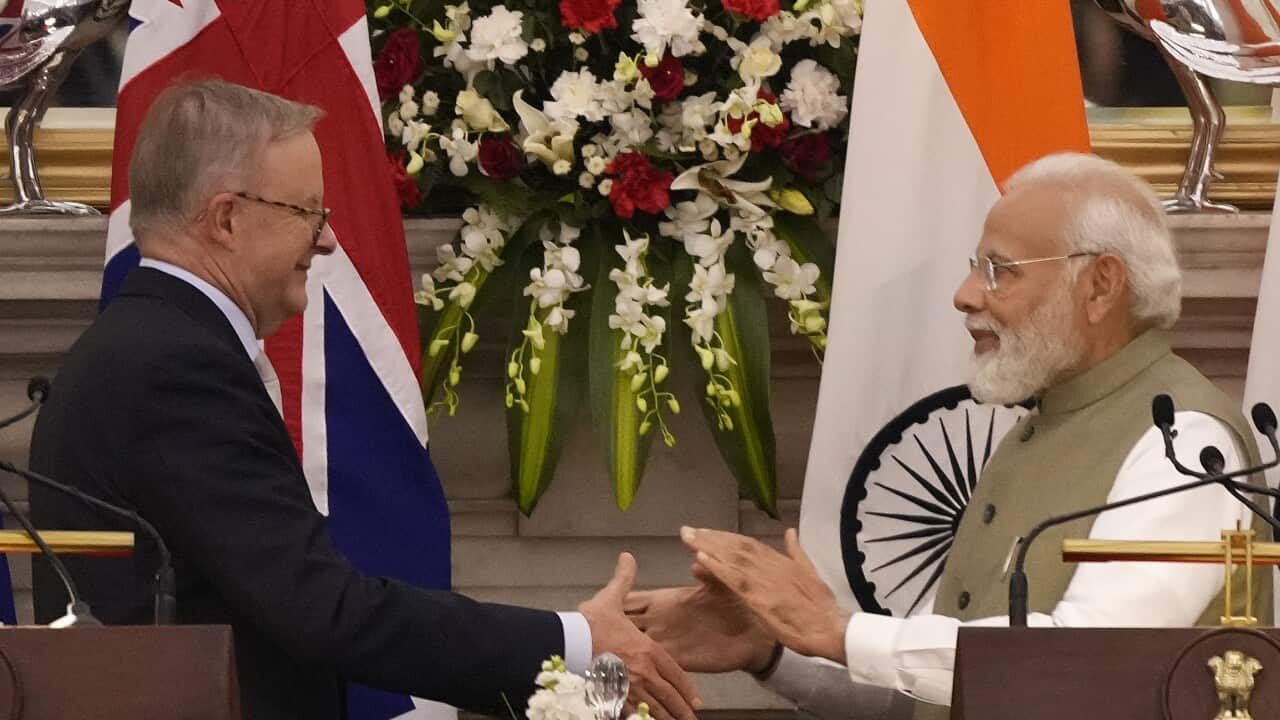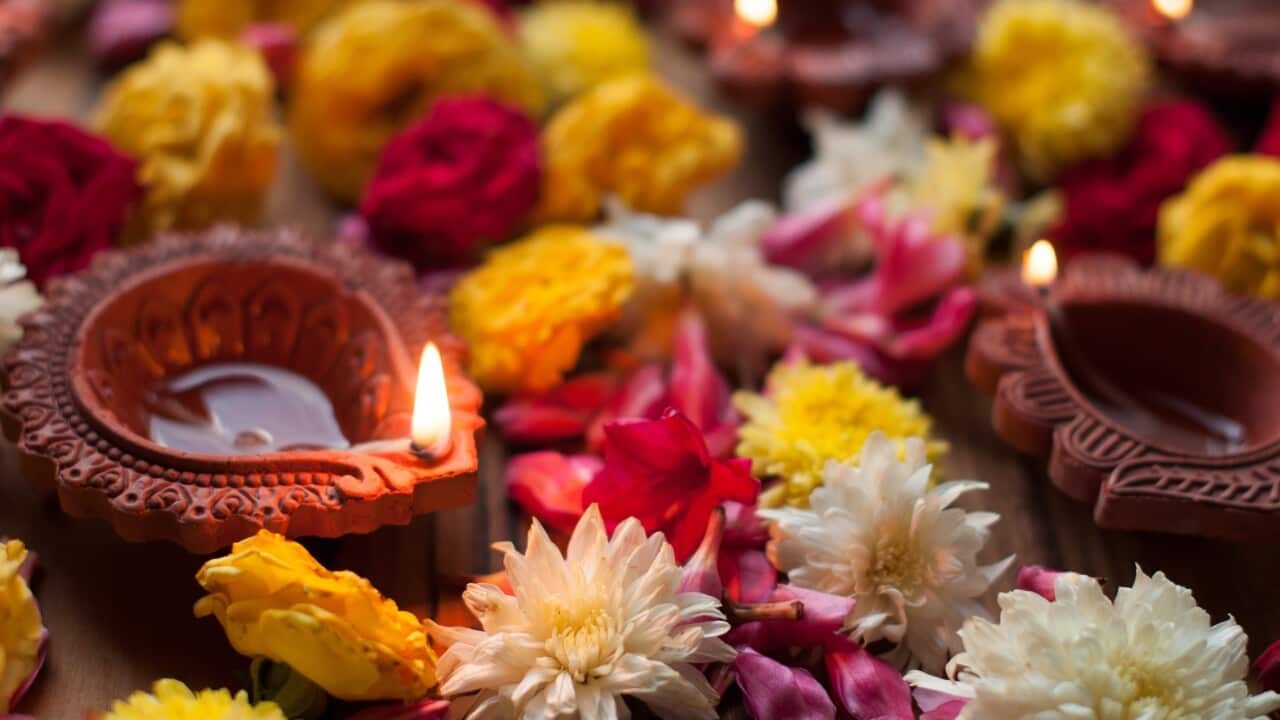Early beginnings and struggle
In the late 19th century, when India was under British rule, Khwaja Muhammad Bux embarked on a ship to see the world and earn his fortune.
Years later, his fate brought him to Australian shores where he landed at Fremantle, near Perth.
“At the age of 15 or 16 he ran away from home. He was born in Lahore before India and Pakistan were partitioned. He did not have a very happy childhood. His mum had passed away and he had a stepmother and I think he did not get along very well with her," Bux' great-granddaughter Tammy tells SBS Hindi.
So he left Lahore and traveled to Calcutta. There he started working on a ship that took him to different continents- Africa and Europe. Some of his sea mates told him about Australia, this country where the discovery of gold had just happened. It was around the 1880s, when on his second trip to Australia, he arrived at the Port of Fremantle." Bux was an adventurer, entrepreneur and a risk-taker of sorts.
Bux was an adventurer, entrepreneur and a risk-taker of sorts.

Khwaja Mohammad Bux's son Amir Bux (left) and grandson Sadiq Bux (right), the father of our raconteurs, Adil and Tammy Bux. Source: Supplied
He arrived in Fremantle, during the time of gold rush in Australia, without any money or resources.
But Khwaja Muhammad Bux, who was also known as Haji Muhammad Bux, left a mark on Perth. He made his start as a hawker and went on to become a shop owner, a landlord of several properties and a philanthropist who built Perth’s first-ever mosque.
Adil Bux, the great-grandson of Khwaja Mohammad Bux and son of Sadiq Bux, says, “We discovered a manuscript written in Urdu and we had it translated to English by the University of Western Australia. That is how we have a reasonably good understanding of what happened.” Khwaja Muhammad Bux was a person with great business acumen and foresight, say his descendants.
Khwaja Muhammad Bux was a person with great business acumen and foresight, say his descendants.

Khwajha Mohammad Bux's grandson Sadiq Bux at the war memorial. Source: Supplied
“He got his experiences chronicled by a professional scribe in Urdu,” says Adil.
Bux’s odyssey has been encapsulated in a book ‘Colonial Cousins’ by authors Joyce Westrip and Peggy Holroyde.
“Haji Mohammad Bux calls himself a ‘Musafir’, a sojourner. He landed in Freemantle with two Madrasis (Tamilians) and all of them started looking for accommodation in the city. On being advised that some Indian hawkers, who sold clothes, lived about a mile away they trudged to that place seeking shelter but were turned away very rudely.
“Their pleas fell on deaf ears, so the three walked back to the ship.
“There, an English man pointed them to another household of some Indians, so they walked a long distance to that place at nightfall.
“They pleaded for shelter for one night but were denied accommodation.
“They pleaded with the householder who finally told them to spend the night in his 'chook place' which had some kind of roof over it. The night was spent there among chook poo and feathers and the chooks fluttering over them. Thus began their journey,” the book chronicles.
A man with limited resources but great business acumen
Tammy Bux says her great grandfather was a man with limited resources.
“We have this wonderful family legend that he was quite crafty and resourceful. When he landed in Fremantle with spare change in his pocket, he bought a bunch of grapes. And as he walked towards the city of Perth, he managed to barter the grapes for a higher value of goods. That is how he started his business of trading, hawking and eventually setting up a shop. With his sheer tenacity and business acumen,” says Tammy.

The great grand-daughter of Khwaja Mihammad Bux with her father Sadiq Bux in 1969 Source: Supplied
Cultural challenges in a foreign land
Khwaja Muhammad Bux worked very hard over the years and made enough money to buy shops and properties which he rented out.
In the meantime, he managed to bring his father to Perth and later his wife and daughter joined him to live in a flat above a shop in Fremantle.
Bux was also a devout Muslim and his customs and traditions were not understood by the local community.
Due to a lack of awareness in mainstream society about his faith, a court case was filed against Khwaja.
“Because of the Muslim tradition of purdah or a veil, he kept his wife and daughter upstairs in the accommodation above a shop. He would then get his wife and daughter to come down in the night for a walk, so they would not be seen by the non 'meheram' (men who did not belong to the family). Well, one of his neighbours put in a complaint that he had imprisoned two women in his home, and that led to a court case,” Tammy Bux says.
The judges did not understand this tradition or culture. However, there was a British army officer who had spent time in India and understood the concept, who became a witness and explained the tradition to the judges.
“Thereafter Khwaja Sahib, started to modernise a bit,” says Tammy.

Women in Burkha. This is a representative photo Source: Getty Images AsiaPac Yoray Liberman/Getty Images
The Legacy of the Bux Family
Khwaja Bux, keen to contribute and give back to the community and society, played a pivotal role in building mosques in Perth and in his homeland.
“Being a devout Muslim, he helped finance the first Mosque in Perth. He also helped raised funds to build a Mosque in Lahore, next to their home called Australia House. He also owned a property at Northbridge called Perth Hostel, which is no longer with the Bux family.”
Khwaja saheb’s grandson Sadiq Bux who was the father of Tammy and Adil was a pioneer in his own right.
Sadiq Bux established a successful Halal meat business in Western Australia. He was also the founder of the Australian Asian society which still runs successfully to establish a greater understanding between the two worlds.
“He was a large-hearted soul who was a great patron of subcontinental art and culture and promoted it widely in Perth,” Tammy says.


The first Mosque in Perth towards which Khwaja Mohammad Bux gave finances for construction Source: Supplied

The Masjid built in Lahore by the Bux family, close to their house in Lahore called Australia House Source: Facebook/Australian Cameleers









